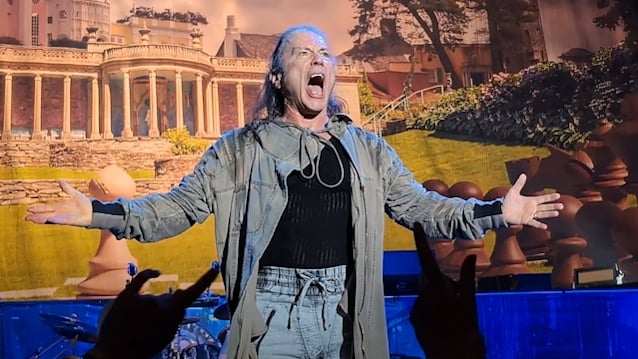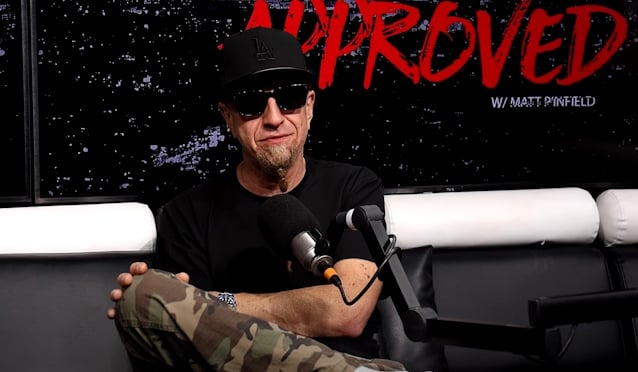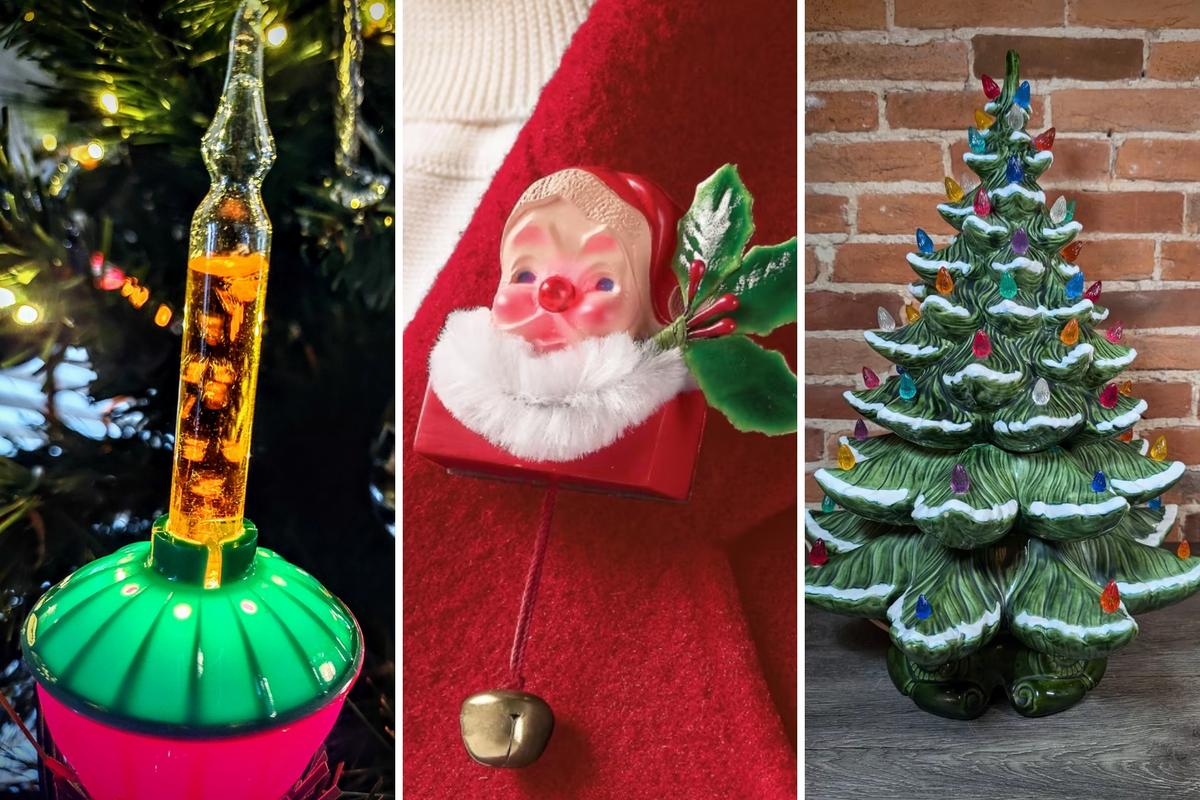During a new appearance on the Rich Roll podcast, IRON MAIDEN singer Bruce Dickinson spoke about the band’s ethos of independence and integrity, refusing to follow trends or bow to commercial pressures. He said in part (as transcribed by BLABBERMOUTH.NET): “We are outsiders in terms of the music industry in a lot of senses. There are bands, and there are bands, and there are bands, and they’re just bands. I mean, you might like them, you might not like them, they might be successful or not successful. But MAIDEN is somehow more than that. MAIDEN is part of the core existence for a massive number of people, an unlikely number of people from all kinds of walks of life and avenues, from CEOs to special needs people — I mean, the whole gamut — and everybody seems to get something out of the band. And I don’t analyze it or question it. It just is. And it’s a product of who we are when we get together.”He continued: “It’s a strange chemistry, because it’s manufactured — as in, I would never have met [MAIDEN bassist] Steve Harris and [MAIDEN guitarist] Dave Murray in the normal course of my life, ever, if they hadn’t gone, ‘Hey, we want a singer for IRON MAIDEN.’ And now, what we have in common is IRON MAIDEN, is that music. And, of course, we all got to know each other. And one of the reasons I think the band has survived is because we have grown into each other over the years as people, but at the same time the music is always sacrosanct.”Elaborating on the importance of retaining the integrity and authenticity in MAIDEN’s music, Bruce said: “When I had throat cancer [a decade ago], the last thing on my mind was, would I ever sing again? The first thing on my mind is, am I gonna get through this and be alive? And the last thing on my mind was would I ever sing again? And I thought, ‘Well, we’ll get to that stage when I’m done and we start trying to sing.’ And I was quite prepared to accept that I might not be able to sing with IRON MAIDEN again. I might be able to sing, I might be able to vocalize, I might be able to sing in a different way, but if I couldn’t sing the way I have to sing with IRON MAIDEN, I’ll help them find a great replacement. Because the music is sacrosanct.”Explaining what he meant by saying that the chemistry in MAIDEN was “manufactured”, Bruce said: “The manufacture bit comes from only in the sense that we didn’t all grow up on the same street. And in actual fact, bands that all grow up in the same street together, or families that play together, that could be a recipe for implosion. I mean, I know OASIS have just gotten back together and doing it, but my God, how difficult was that? The two brothers and… So we all get together, but the music is the single point of contact that is the most important thing for all of us. If I couldn’t do it, if I couldn’t do what I do now effectively, I would be the first one to say, ‘You know what? It’s time I retired from singing for IRON MAIDEN and did something else.’ Stack shelves or something. Because I have too much pride on the line to go out there…”He added: “I was speaking to a fan the other day, and they said, ‘Oh, it’s great you guys are all still back together.’ I said, yeah, we’re all still back together because we’re fierce and the music is still as good, if not better in some respects, than we played it 20 or 30 years ago.”Dickinson, who had a golf gall-size tumor on his tongue and another in the lymph node on the right side of his neck, got the all-clear in May 2015 after 33 radiation sessions and nine weeks of chemotherapy.Bruce previously told iNews that he wanted to cover his cancer battle in his 2017 autobiography, “What Does This Button Do?”, to raise awareness of the condition, which affects people who often have no or minimal history of tobacco or alcohol abuse. The individuals with HPV-related oropharyngeal cancer who undergo treatment have a disease-free survival rate of 85 to 90 percent over five years.During an appearance on the Swedish TV show “Malou Efter Tio”, Dickinson spoke about how his singing voice has changed following his cancer diagnosis 10 years ago.”[It’s] a little bit different,” he said. “Two things are slightly different. One is my saliva, which obviously lubricates your throat a little bit, is a bit less than it used to be. Although, back ten years ago, if I had the same cancer, I wouldn’t be making any saliva. But now, I’m probably 70 percent, which is great. Thanks very much, everybody upstairs. [Laughs] And the other things is that I think that the shape of possibly the back of my tongue, which forms vowel sounds and things like that, might have changed shape slightly, because, obviously, it had a big lump in it, and the lump’s gone. So maybe the surface has changed shape. So I notice a few differences. Funnily enough, the top end of my voice is maybe even a little bit better than it was before. [Laughs]”Dickinson said that he was given “the all-clear” by his specialists following an MRI scan after a course of chemotherapy and radiology.”I was amazed,” he said. “My cancer was a 3.5-centimeter tumor in my throat and a 2.5-centimeter one in my lymph node, and that was the one that I could feel — that was the secondary one. But I did 33 sessions of radiation and nine weeks of chemo at the same time, which is fairly standard therapy for it. And it was gone. And I said to my oncologist: ‘What do you mean it’s gone? Where has it gone?’ And he said, ‘Well, your body just gets rid of it.’ A body is an amazing thing.”Bruce’s latest solo album, “The Mandrake Project”, was released in March via BMG.[embedded content]
/
November 5, 2024
BRUCE DICKINSON Was Willing To Help IRON MAIDEN Find ‘A Great Replacement’ If He Couldn’t Sing Following His Cancer Diagnosis







